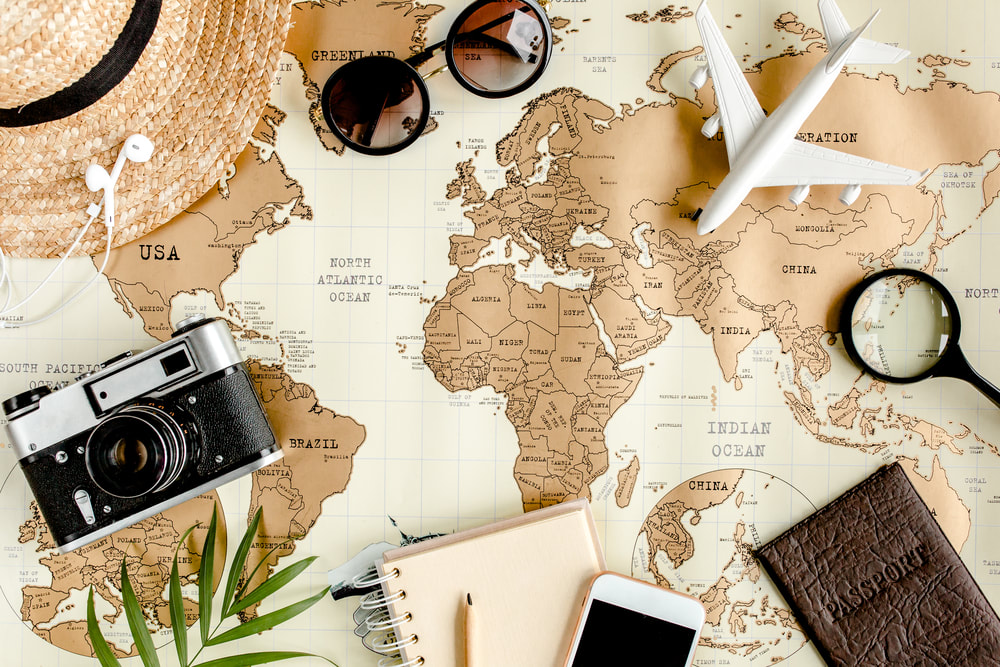How can travel affect the eyes?Travel can affect the eyes for a variety of reasons. For instance, the climate where you travel may be different from what you’re used to. Extreme temperatures, both hot and cold, can contribute to dry eyes. A different environment may also mean an increase in allergens and lead to eye allergy symptoms. Also, consider all the activities you may do while traveling, such as drinking more alcohol than normal, spending more time in the sun, and getting less sleep. All of those things can temporarily affect the eyes. Maintaining eye health on the roadWhile you are traveling, there are some easy steps to take to help keep your eyes in good shape. Consider the following suggestions:
Consider the amount of time in the sun. If your travels will include spending a lot of time in the sun, try to prepare. Too much sun exposure can irritate the eyes and increase dry eyes. Make sure to wear sunglasses that provide close to 100 percent UV protection. It is also important to wear sunscreen, and that includes around the eyes. Stick to your eye care routine. Sometimes, our regular habits and routine go out the window when we travel. Try to stick to the healthy habits that keep your eyes healthy. For example, if you wear contact lenses, don’t skimp on your eye care routine. Avoid wearing contacts longer than recommended. Also, take your eye makeup off at the end of the day. Don’t skip the undereye creams or other eye care routine that you have. Wash your hands often. It may seem simple enough, but when we are rushing off from one activity to the next on vacation, it’s easy to neglect hand hygiene. Washing your hands often is even more important if you are traveling and touching high traffic surfaces. Treat allergies as needed. If you tend to suffer from eye allergies, take allergy eye drops along. Consider the environment that you are traveling to. Your eye allergy symptoms may become worse. For example, if you will be spending a lot of time outside, you might be exposed to more pollen than normal. Bring backup. You don’t want to be out of town and lose your eyeglasses or contacts. Try to bring a backup pair of eyeglasses, sunglasses, and contact lenses. Also, make sure you have enough of your prescription eye medications to last a few extra days. You never know when a flight will be delayed or travel plans change. Stay well hydrated. It is easy to become dehydrated while traveling, which can make symptoms of dye eyes worse. Spending more time in the sun, a change in diet, and air travel can all increase dehydration. Wear eye protection as needed. Don’t neglect eye safety. If you are participating in certain activities that pose a risk of an eye injury, wear the appropriate eye protection. For instance, if you are skiing, wear goggles. Don’t ignore vision changes. While no one anticipates eye problems while on vacation, don’t ignore symptoms if they do occur. If you have any unusual eye symptoms, such as a loss of vision, eye pain, or suddenly seeing bright flashes of light, go the emergency room. If you have any questions about eye health and travel or other eye issues, we are happy to help. Also, if you would like to ask whether an appointment with one of our eye doctors would be appropriate at this time, call our office at 508-746-8600. Comments are closed.
|
EYE HEALTH BLOGCategories
All
Archives
July 2024
|
|
Kadrmas Eye Care New England
55 Commerce Way, Plymouth, MA 02360
14 Tobey Road, Wareham, MA 02571 133 Falmouth Road (Rt 28), Mashpee, MA 02649 |
Phone Number:
1-508-746-8600 Hours: Monday through Friday — 8 AM – 4:30 PM |


 RSS Feed
RSS Feed
